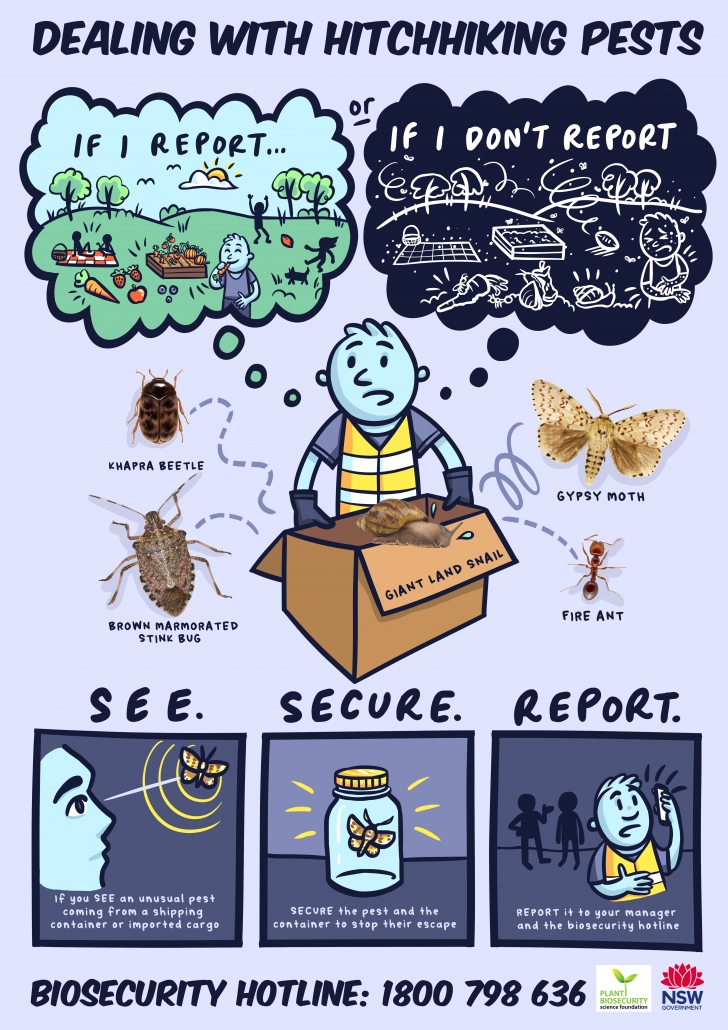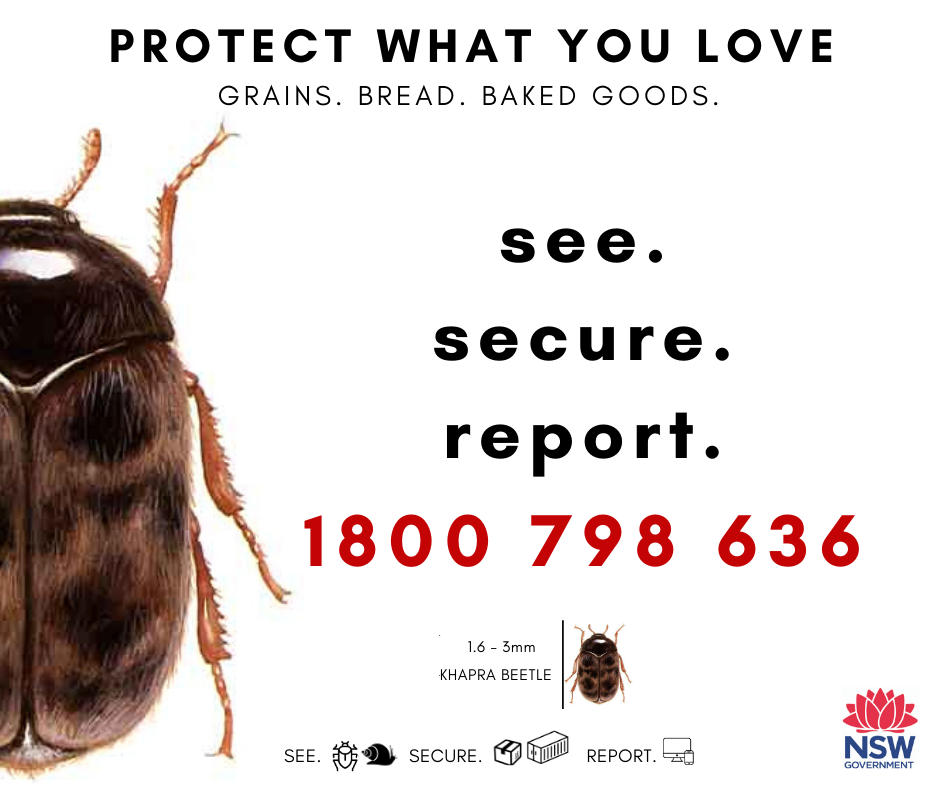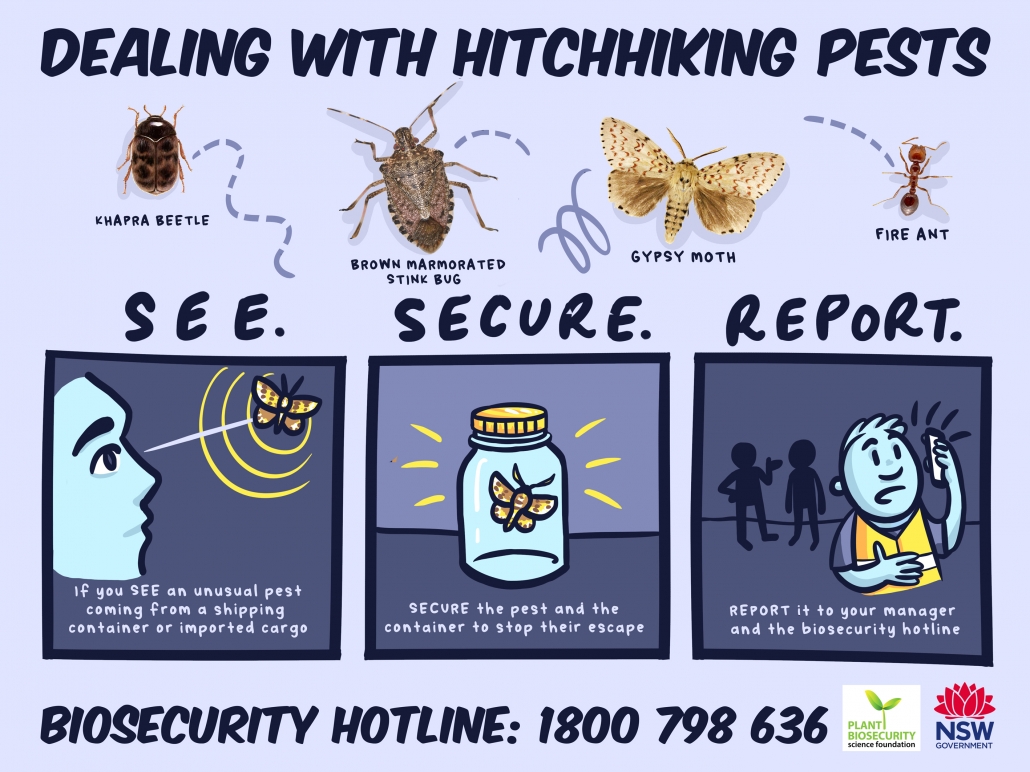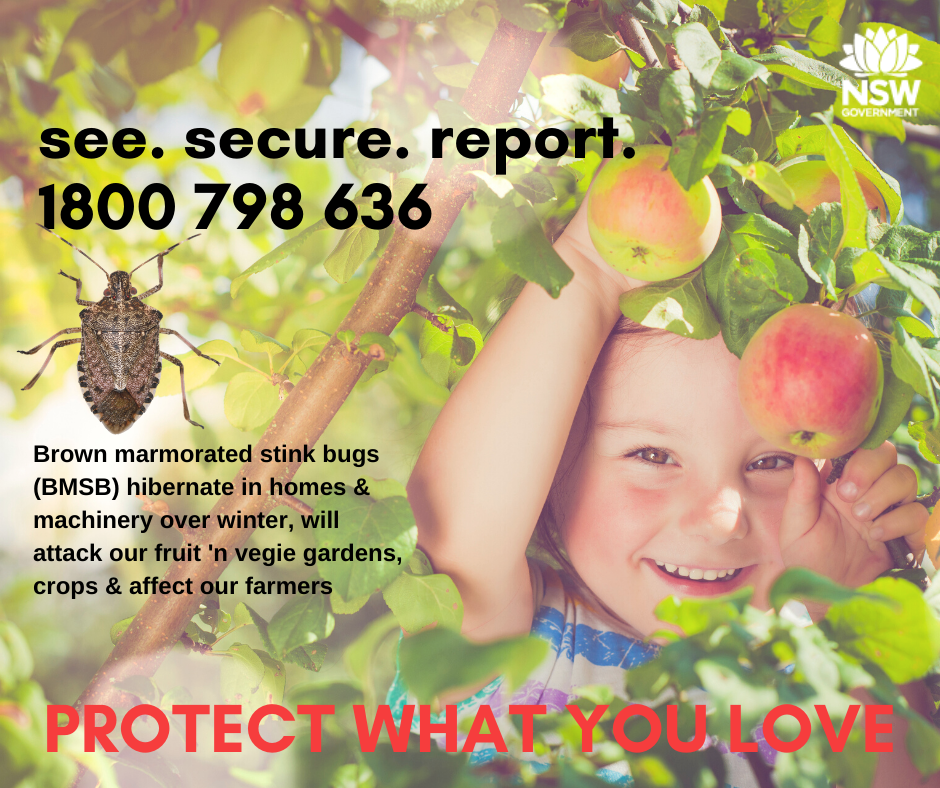Project Leader, Organisation
Nic Schembri, NSW Department Primary Industries
Status
COMPLETE
Background
Three recent incursions in Greater Sydney have highlighted the risks associated with the importation of goods into Australia and spread from the ports and Intermodal Terminals. These incidents also highlight the need for vigilance from transport and warehouse workers to identify and report biosecurity risks.
The NSW Department of Primary Industries (NSW DPI) is working with Local land Services, Plant Health Australia, Department of Agriculture and Water Resources, and other jurisdictions to deliver a nationally consistent communications education campaign to improve biosecurity awareness and action in the freight and logistics industry.
Objectives and impact
Aim: To reduce the risk of exotic pests and diseases entering Australia undetected through our ports and international gateways.
Objectives: Build capacity in freight and logistic supply chains to address and reduce biosecurity risks by:
- Making the case for good biosecurity by communicating the benefits it delivers
- Encouraging surveillance and reporting
- Encouraging and supporting businesses to develop biosecurity management plans at freight hubs, intermodals and warehouses
- Working in partnership to proactively engage with and educate key supply chain stakeholders on biosecurity responsibilities.
NSW DPI will work with its partners and capitalise on existing resources from the national “See. Secure. Report.” campaign to drive awareness. NSW DPI will also invest in a research project to benchmark biosecurity awareness in the industry and current drivers of behaviour.
Impact
The Project showed there is much to do to improve biosecurity awareness, understanding and action in the post-border freight and logistics sector. The team identified the following opportunities:
• Place more focus on contextualising the risk of other exotic pests, in Australia. Use tangible examples, such as financial hardship for farmers, or detrimental effects on native flora and fauna or recreational activities to evoke emotional or personal connections.
• Focus on plain English representation of step-by-step process when spotting something unusual or suspicious. Include very obvious call to action and contact information.
• Include ‘report to your manager’ as part of the call to action for reporting, as employees will generally place priority on their company’s procedures over government procedure.
• Conduct further research with warehouse and distribution centre businesses and staff, as the research pointed to this business group as a noticeable ‘weak link’ in the supply chain concerning biosecurity awareness and sentiment.
• Use a gamification/digital approach to reporting, which would educate staff on sightings of foreign pests like the BMSB.
• Potential for a public-private partnership to deliver biosecurity awareness/educational training across the supply chain sector.
The Final Report with recommendations is available by contacting us at info@apbsf.org.au.
The team also prepared a range of communication materials – available by contacting us at info@apbsf.org.au.












